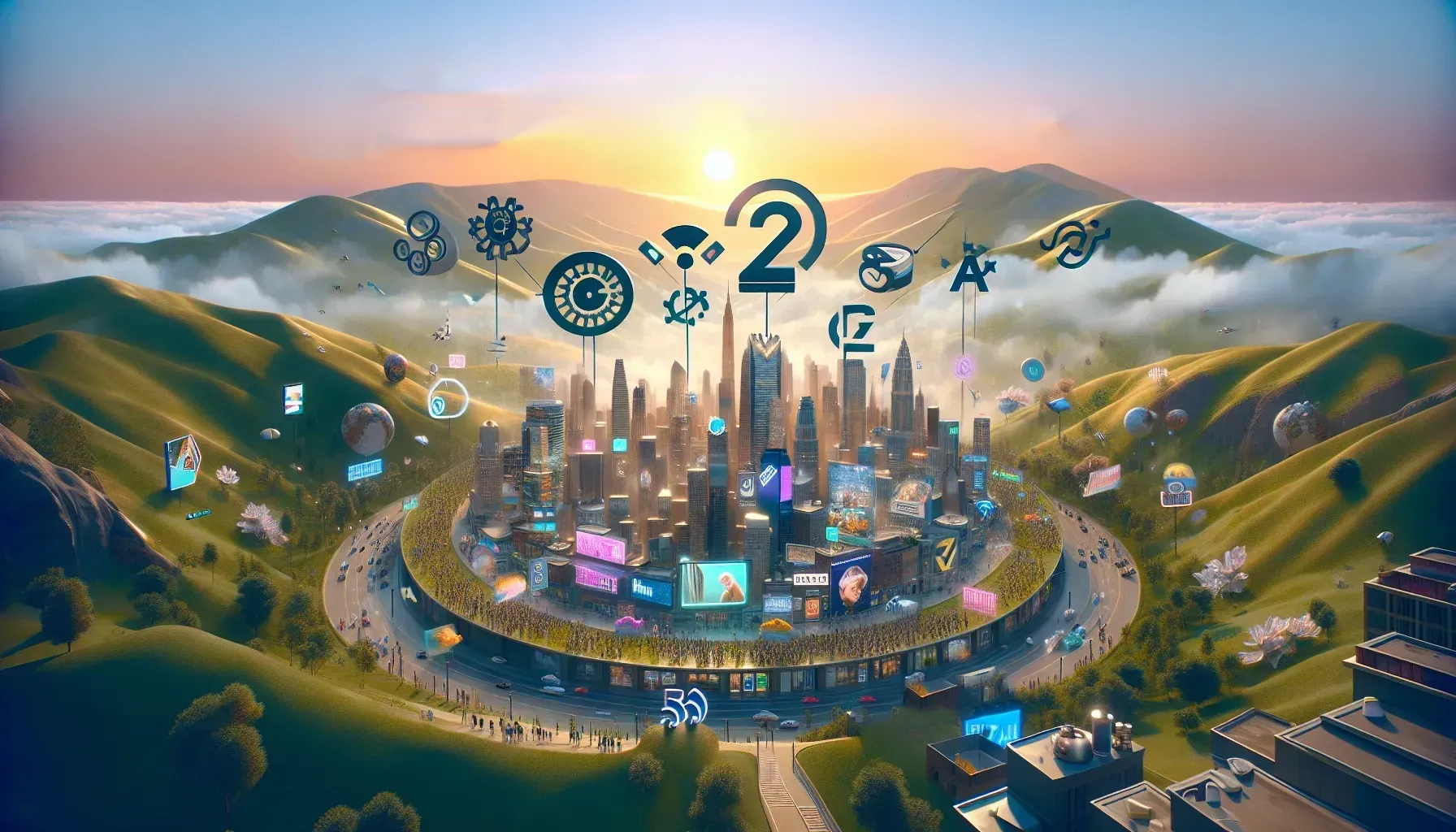Shaping Tomorrow's Marketing Landscape: Gen Z's Digital Consumption Patterns Decoded

In the fast-paced world of digital marketing, it is crucial for businesses to understand and adapt to the evolving preferences of different consumer segments. Gen Z, the generation born between the mid-1990s and the early 2010s, represents a significant demographic with unique digital consumption patterns. In this article, we delve into the distinctive preferences and habits of Gen Z consumers in online spaces, uncovering key insights that can shape the future of marketing strategies.
Gen Z, also known as zoomers, has grown up in a digital age characterized by rapid technological advancements and unprecedented access to information. As a result, their digital consumption patterns differ significantly from previous generations. Understanding these distinct preferences is fundamental for brands aiming to resonate with Gen Z consumers.
Understanding Gen Z's Digital Consumption Patterns
Gen Z is highly reliant on mobile devices for their online activities. Whether it's social media browsing, shopping, or consuming content, this generation prefers seamless experiences optimized for mobile platforms. Brands that prioritize mobile-friendly interfaces and responsive web design are better positioned to capture the attention of Gen Z consumers.
Traditional advertising methods often fall flat when targeting Gen Z. This demographic values authenticity and transparency, seeking genuine connections with brands rather than being subjected to overt promotional content. ClicksBuzz Blog has observed a shift towards influencer partnerships and user-generated content that aligns with this generation's desire for authentic brand interactions.
What is a mobile-first mentality?
Gen Z's purchasing decisions are heavily influenced by societal issues and ethical considerations. This generation is known for supporting brands that align with their values, be it sustainability, social activism, or ethical practices. Marketers must intricately weave value-based messaging into their digital campaigns to resonate with Gen Z consumers on a deeper level.
Why authenticity matters over traditional advertising
The digital landscape has provided a platform for Gen Z to voice their opinions and advocate for causes that matter to them. As a result, social activism and ethical branding play a pivotal role in shaping this generation's purchasing decisions.
How value-driven decision making influences purchases
Gen Z actively seeks out brands that demonstrate genuine commitment to social and environmental causes. By recognizing that by associating with relevant social issues and championing meaningful causes, brands can forge stronger connections with Gen Z consumers who value purpose-driven initiatives.
Ethical branding goes beyond philanthropic gestures; it encompasses transparent business practices, responsible sourcing, and ethical production methods. Gen Z scrutinizes brand narratives for authenticity and demands full transparency in all aspects of a company's operations. Leveraging this insight, brands can establish trust and credibility among Gen Z consumers through transparent storytelling.
Related Article: Generational Dynamics in Digital Marketing: Exploring the Intersection of Experience and Innovation
The Role of Social Activism in Gen Z's Purchasing Decisions
Micro-moments refer to brief windows of opportunity during which consumers reflexively turn to a device often a smartphone to act on a need. Understanding these moments is essential for capturing Gen Z's attention amidst the sea of digital content vying for their focus.
How do brands embrace causes that matter?
As we emphasize the need for marketers to identify micro-moments relevant to their products or services and deliver concise yet impactful content tailored to address specific consumer needs during these moments. Brands that effectively capitalize on micro-moments can catalyze engagement and drive conversions within this dynamic consumer segment.
The digital landscape has cultivated an environment where instant gratification is not just desired but expected. Gen Z is accustomed to instant access to information, services, and entertainment. Tailoring digital experiences to provide quick, seamless solutions is paramount in meeting this demographic's expectations and sustaining their interest.
Related Article: The Reinvention of African Digital Marketing: Dynamic Strategies in a Diverse Continent
Why transparency is a priority for Gen Z consumers
Influencer culture has permeated the digital sphere, wielding significant influence over Gen Z's brand preferences and loyalty. However, authenticity remains a non-negotiable factor in driving brand allegiance within this demographic.
Micro-Moments and Instant Gratification in Digital Engagement
ClicksBuzz Blog observes that influencer collaborations can amplify brand visibility among Gen Z audiences. Partnering with influencers who authentically align with the brand's ethos can foster meaningful connections and cultivate long-term loyalty within this consumer segment.
Authenticity reigns supreme in influencer marketing aimed at reaching Gen Z. The audience can swiftly discern insincere endorsements from genuine advocacy. Brands must carefully curate partnerships that reflect sincerity and real affinity between influencers and products or services to effectively capture the loyalty of Gen Z consumers.
How to capture micro-moments effectively?
Gen Z's immersion in digital ecosystems extends beyond conventional online interactions; they actively engage with emerging technologies, presenting both challenges and opportunities for marketers looking to captivate this tech-savvy demographic.
What are Gen Z's instant gratification expectations?
As we highlight the potential of integrating AR experiences into marketing strategies targeted at Gen Z. AR technology offers immersive and interactive elements that resonate profoundly with this generation's preference for innovative digital engagements.
Marketers can leverage VR experiences to transport Gen Z consumers into captivating virtual realms that showcase products or experiences in compelling ways, creating memorable brand interactions that transcend traditional advertising formats.
The Impact of Influencer Culture on Brand Loyalty
As brands navigate the complexities of digital marketing in an era shaped by Gen Z's distinct consumption patterns, understanding these dynamics becomes increasingly critical. By aligning strategies with the preferences and habits unique to this generation, businesses can position themselves at the forefront of tomorrow's marketing landscape.
Frequently Asked Questions
Gen Z prefers mobile-first experiences, valuing seamless interactions on their devices. They also seek authenticity over traditional advertising, favoring genuine connections with brands and influencer partnerships that reflect their values and interests.
Social activism plays a crucial role in Gen Z's buying choices. They support brands that demonstrate commitment to societal issues and ethical practices, seeking transparency and authenticity in brand narratives that align with their values.
Authenticity is vital for Gen Z's brand loyalty because they can easily identify insincere endorsements. Brands must partner with influencers who genuinely align with their ethos to foster meaningful connections and cultivate lasting loyalty among this demographic.
Check Out These Related Articles

Decoding the Gen Z Code: Reinventing Digital Marketing for the New Generation

The Cross-Cultural Codex: Adapting Content Strategies for Globalized Audiences in Digital Marketing

Catalysts of Change: Diversity Advocates Reshaping Digital Marketing Narratives

